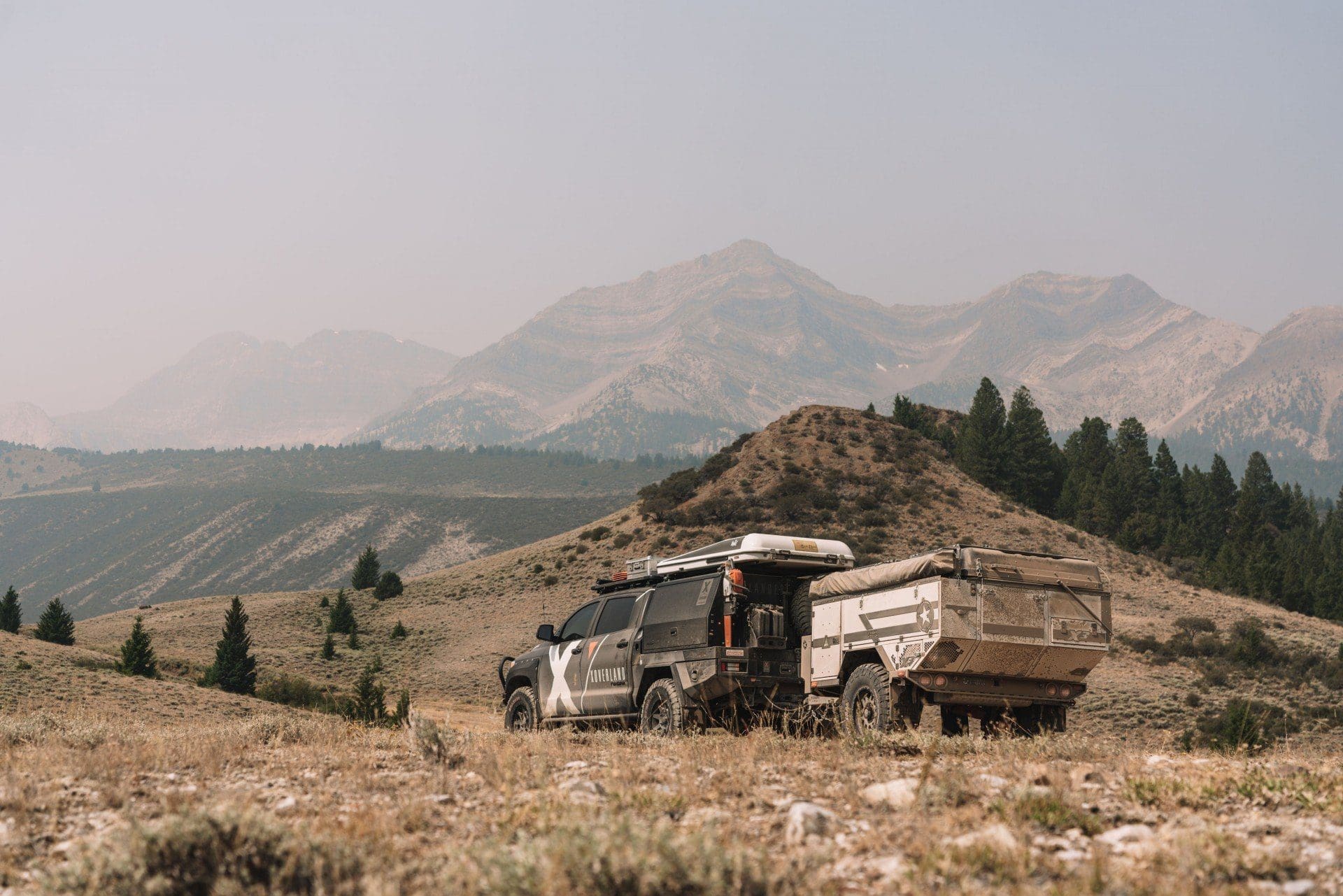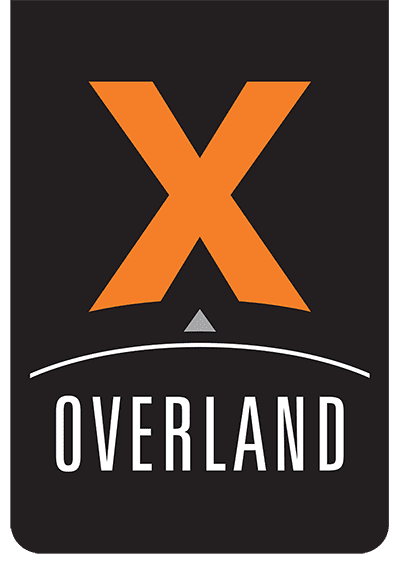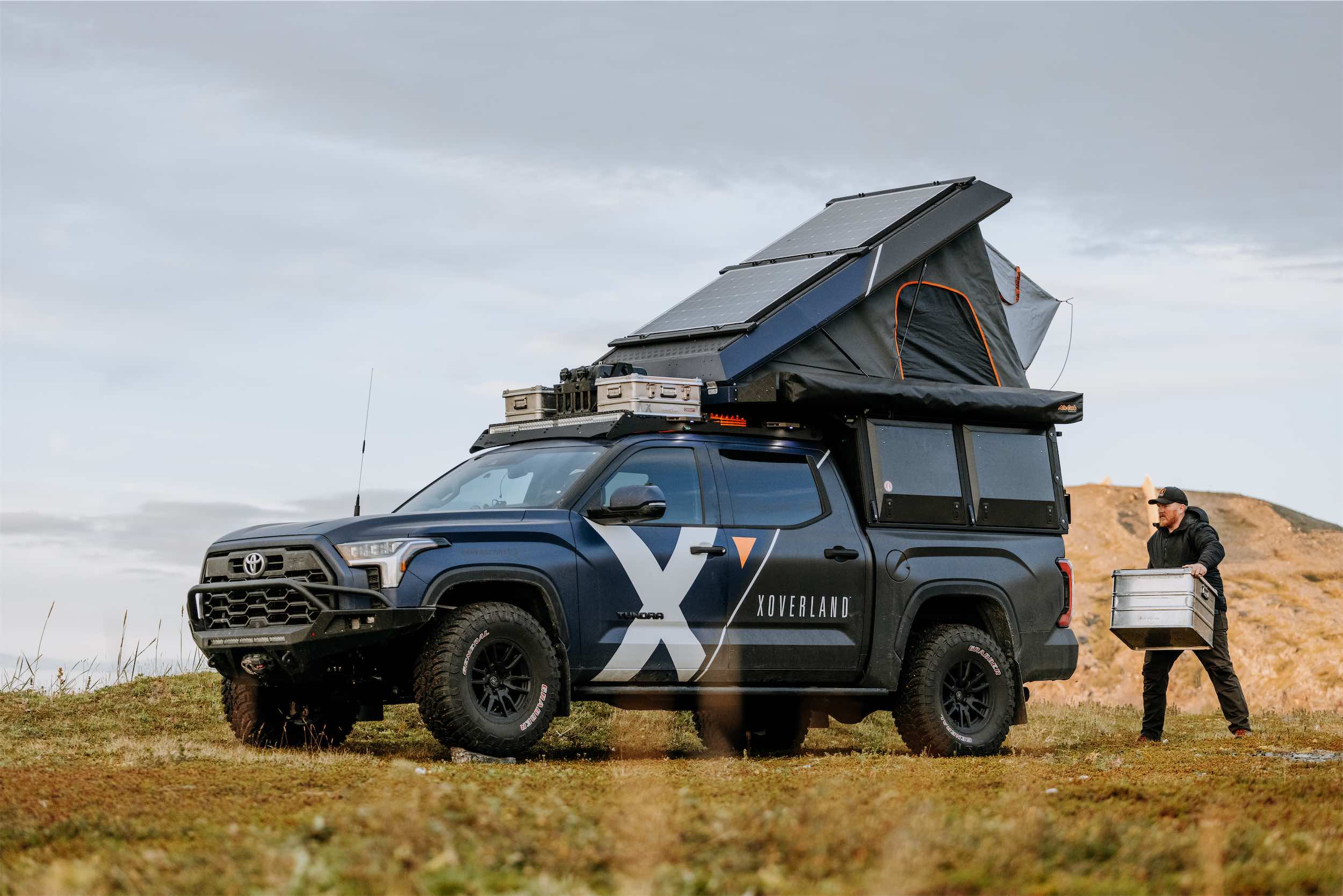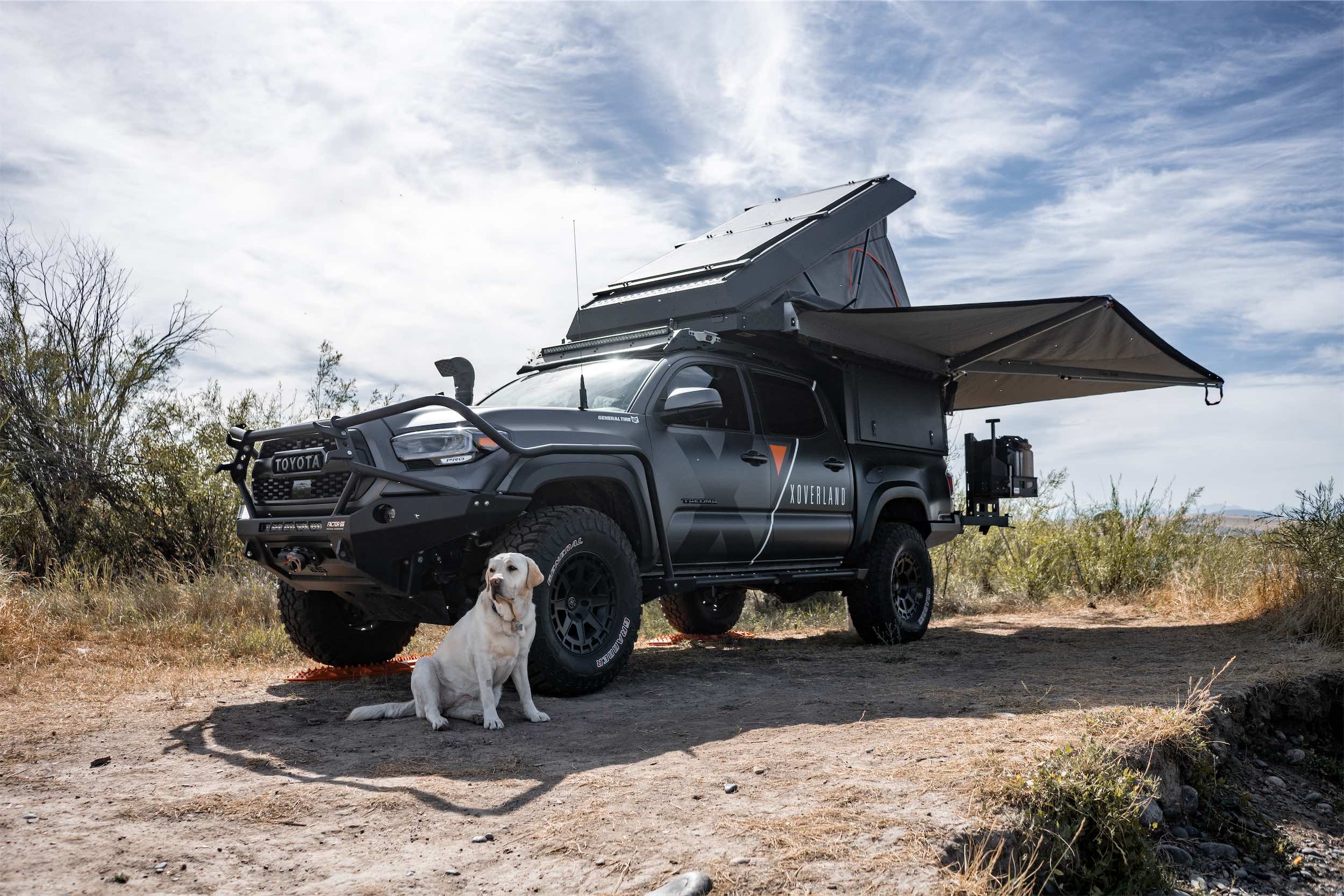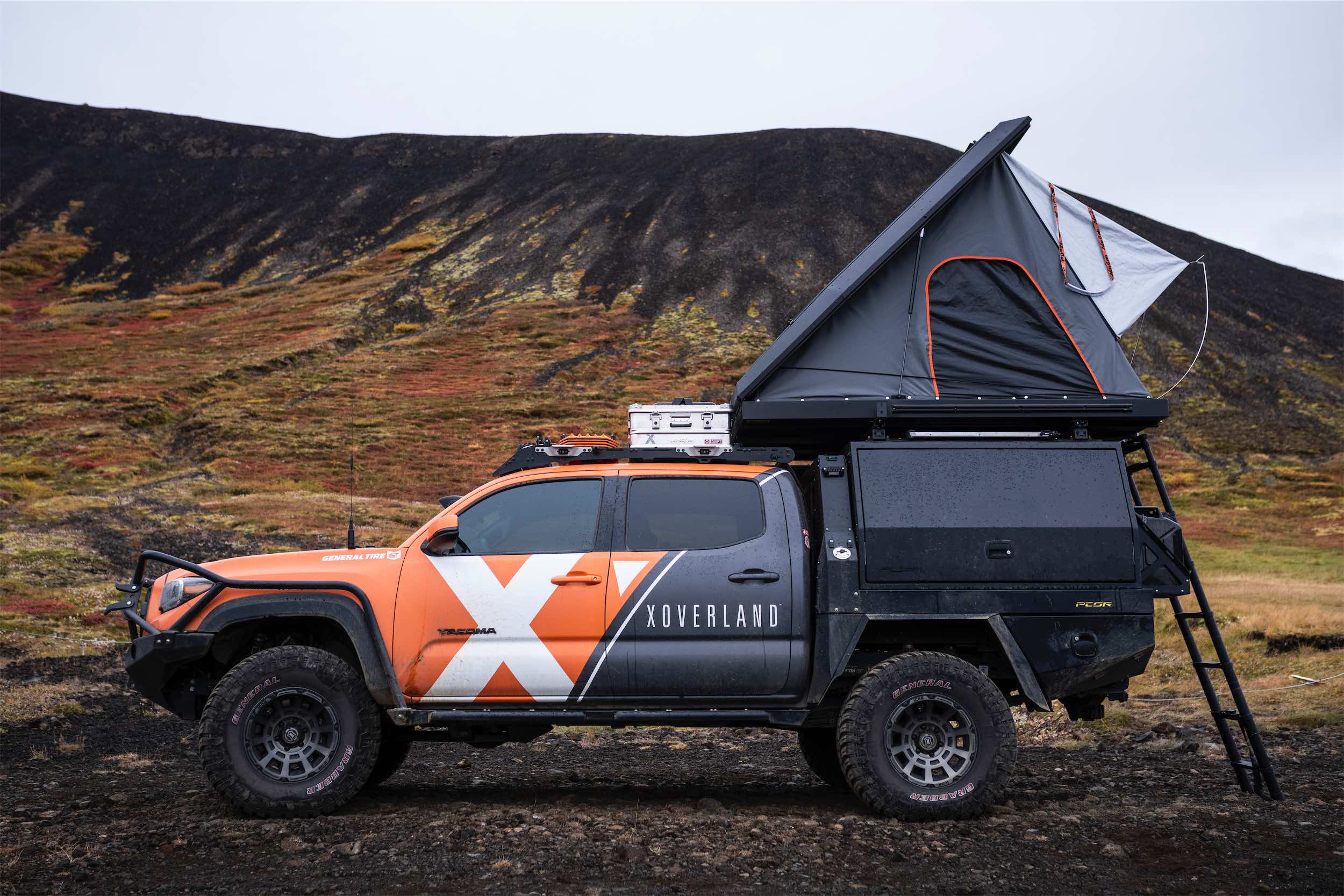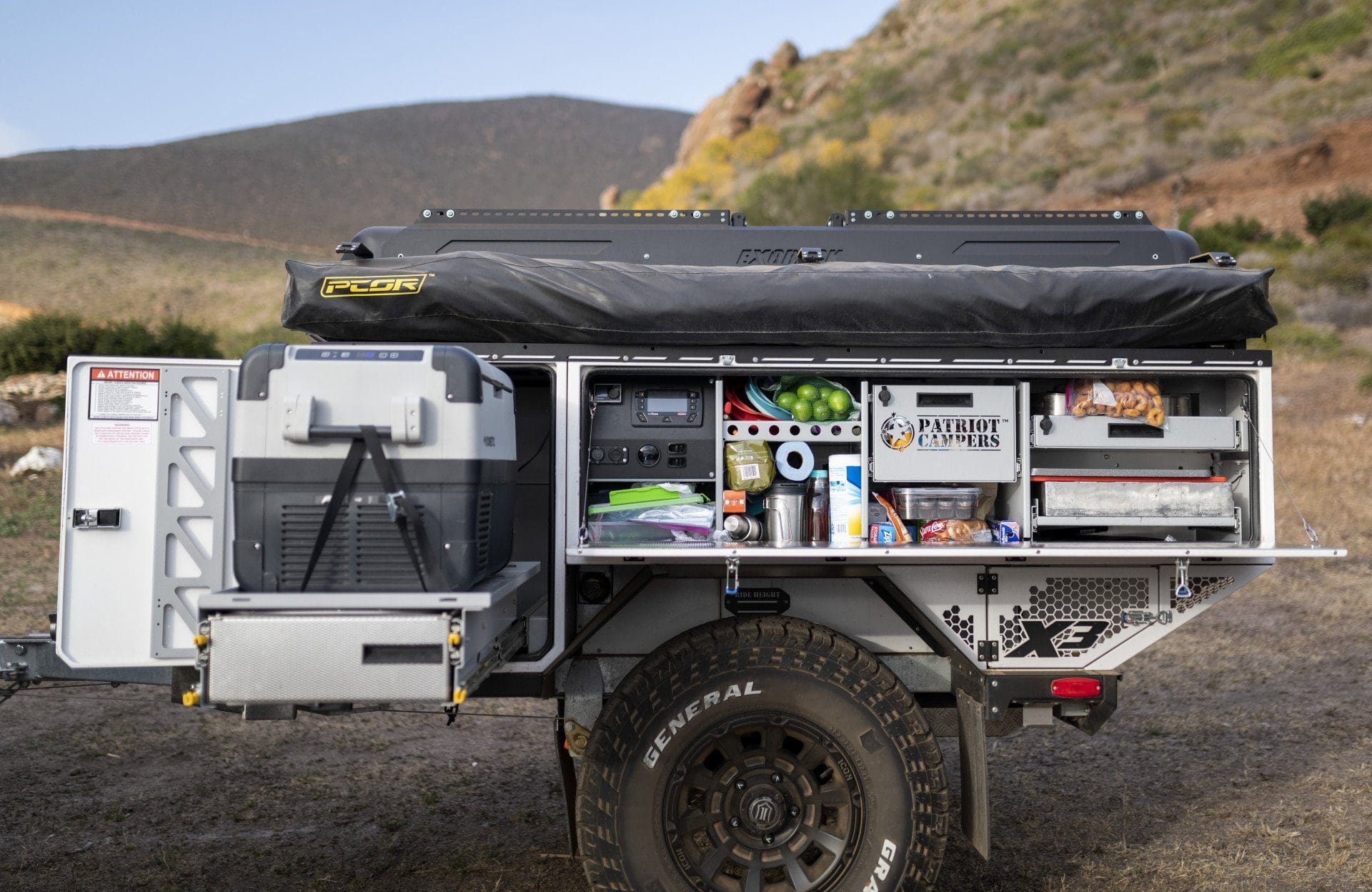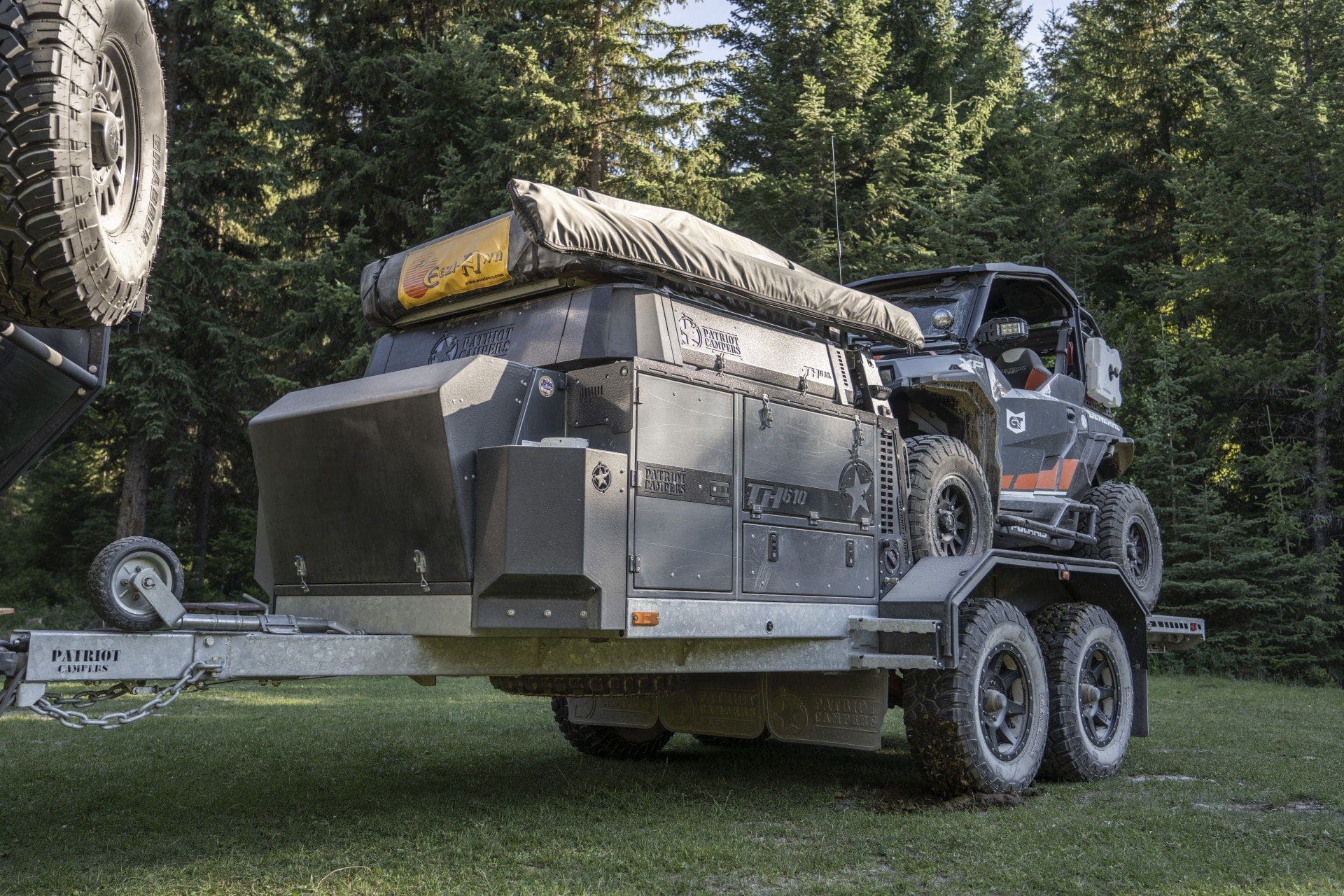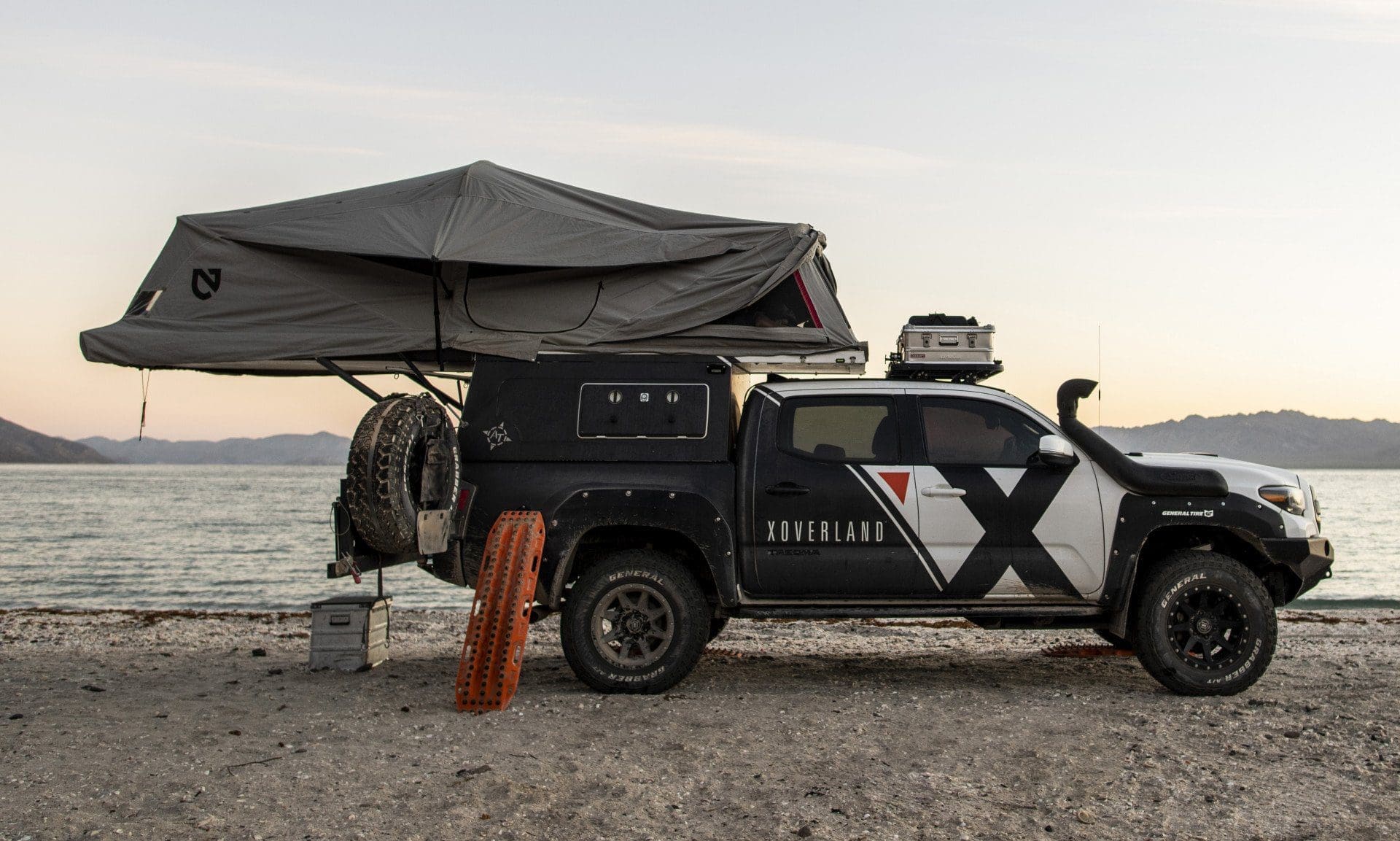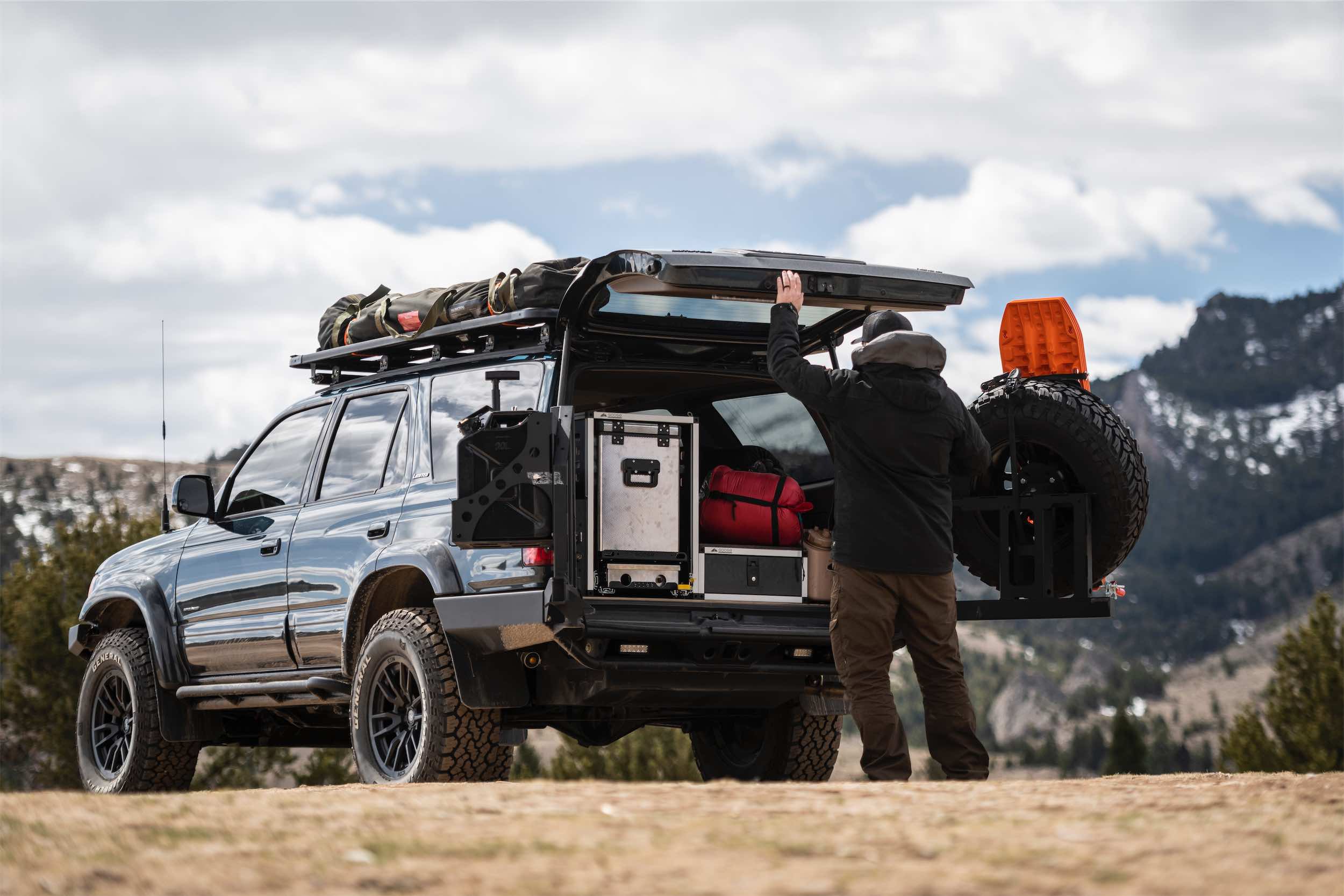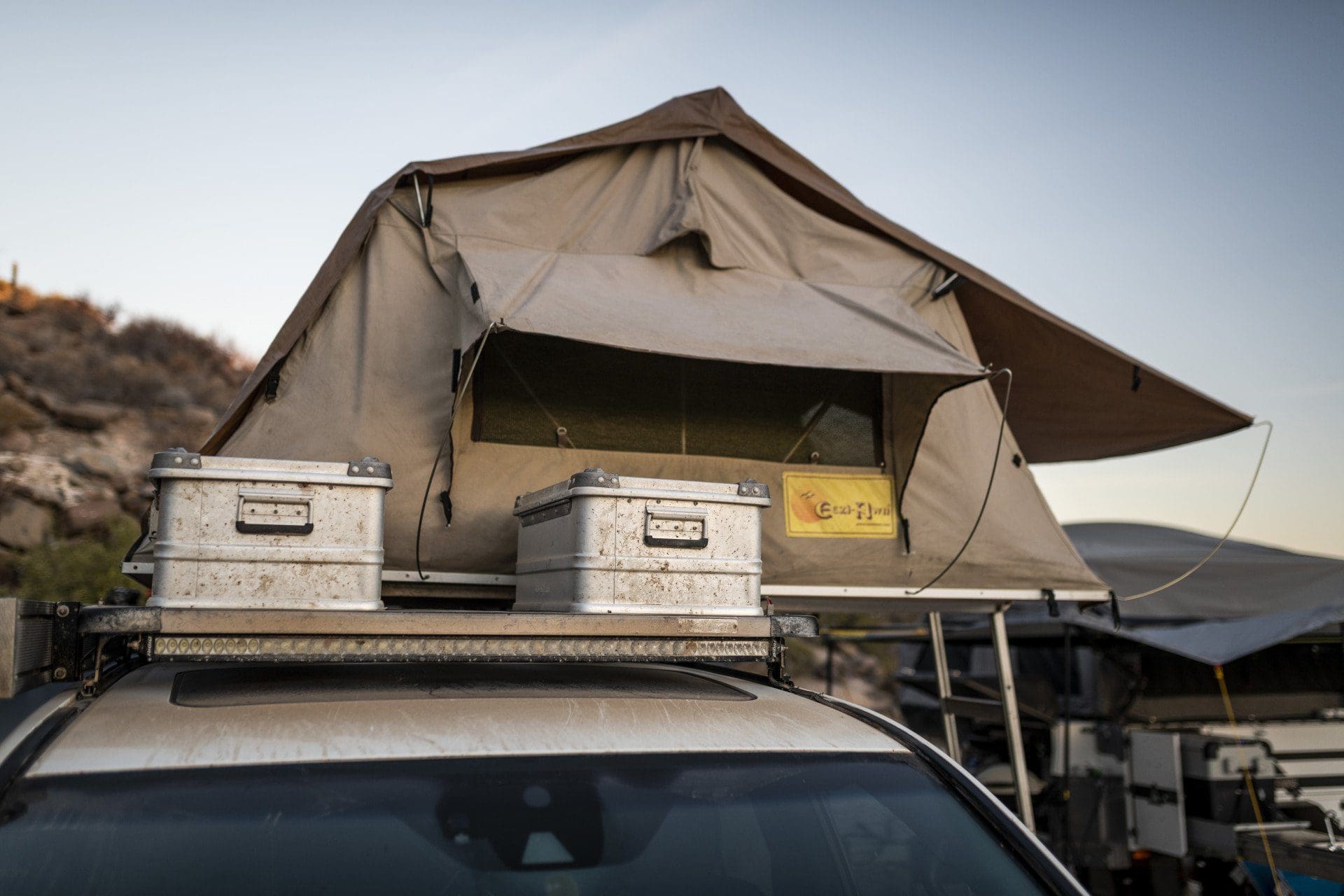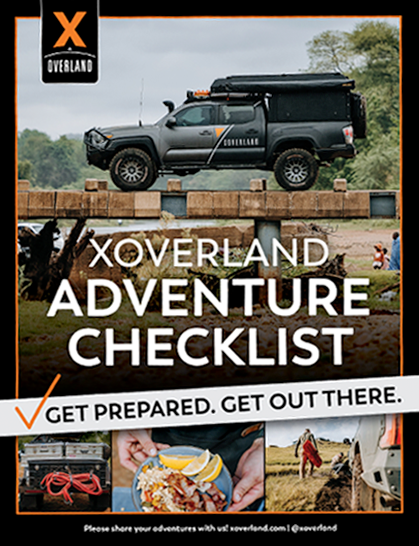

Our Proven Recommendations
We’ve used a variety of different trailers and sleep systems from Season Zero to present.
LEARN MORE
WHAT IS THE BEST OVERLAND TENT?
What IS the best overland tent? From soft shell to hard shell, and with many different brands to choose from, it can be difficult to decide which tent is best suited to your lifestyle. The most important question you need to ask yourself is, “Which is the best overland tent for ME?” Below we’ll discuss the most widely used overland tents, including the classic rooftop tent (soft and hard shell) and the ground tent. Hopefully, this information will help make the decision-making process much easier.
The Classic Rooftop Tent (RTT)
Soft and hard shell rooftop tents are classics among overlanders. Here are the pros and cons of each.
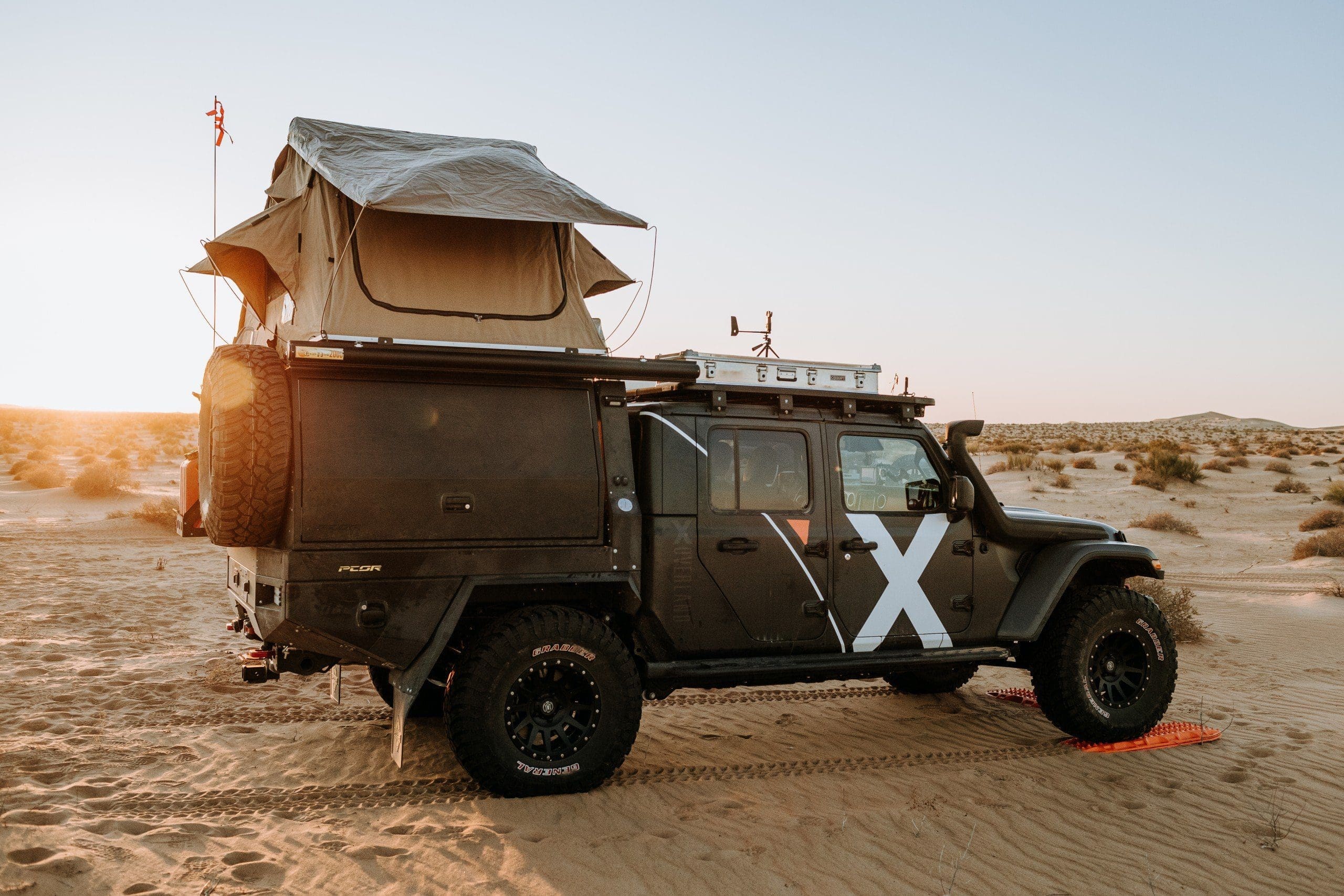
Pros:
- Easy setup. No need to fiddle with tent poles, pegs, and straps! The mattress is already stored inside the tent and doesn’t need to be filled with air. You can also store your sleeping bag inside the tent.
- The rooftop tent is off the ground, which removes your sleeping quarters from wet and muddy environments, bugs, and, potentially, animals. The platform also keeps you from rolling into holes, over rocks, or uneven sections of ground during the night. Sleeping up off the ground can also create a sense of security.
- Ease of leveling. If you are camping in an area that isn’t flat, it’s easier to level your vehicle than trying to find a flat spot for a ground tent.
- Rooftop tents have good airflow. Windows on all four sides optimize airflow patterns, resulting in much more comfortable sleep.
- The mattresses are generally quite comfortable. It is also possible to add a foam topper for extra comfort.
- A good quality RTT is waterproof and water-resistant. Since the first season of Expedition Overland nearly ten years ago, the Eezi-Awn tent has been a great proving ground. We’ve slept soundly during incredibly rainy nights with no water leakage.
- FUN. Rooftop tents are a blast to sleep in. They remind us of treehouses from our childhood and are a great place to enjoy the view.
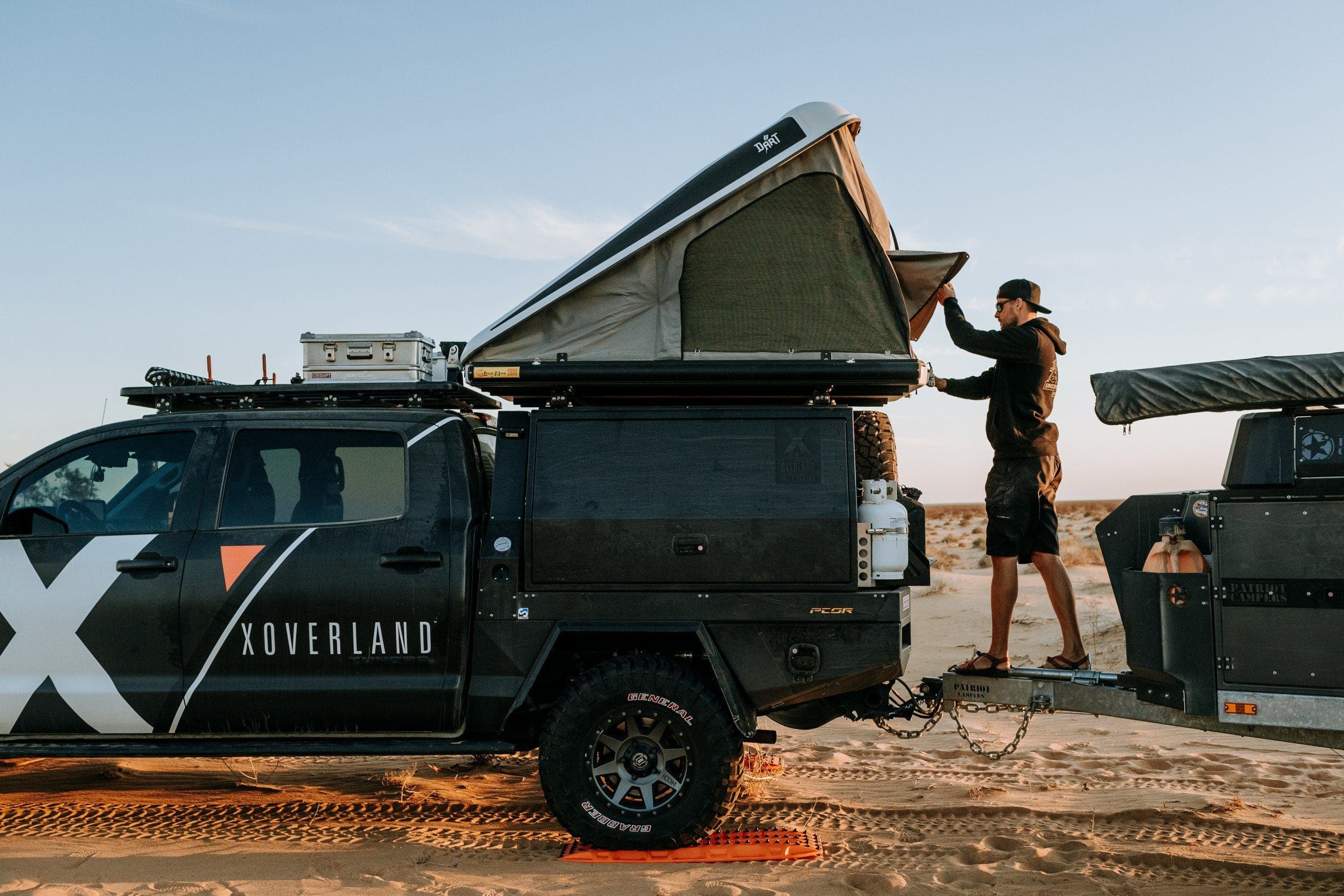
Cons:
- Once the tent is set up, you can’t drive your vehicle. This can be a drag if you’re heading into town every day. This setup is best if you are staying at a specific location for a while. Consider topping a trailer with a RTT. This setup makes it easy to leave the trailer at base camp while you head off to adventure during the day.
- The classic rooftop tent does not handle wind well. The material is incredibly noisy with the potential for damage in high wind speeds. The hard-shell RTT does better in windy environments, especially if you point the tent into the wind.
- Compared to a ground tent, rooftop tents are heavy. Most weigh between 125 and 250 lbs., whereas a ground tent is 10 lbs or lighter. This high-mounted weight can result in reduced fuel mileage, alter the vehicle’s road manners, and increase sway.
- A rooftop tent requires the installation of an appropriate mounting system. You must consider your vehicle’s payload when mounting any aftermarket accessories.
- Rooftop tents are not immune to wear and tear. Time on rough roads will affect how the tent holds together. In addition, if your tent spends a lot of time open and in the sun, the sun’s rays will break the material down faster than your travels will.
- High risk of injury. Climbing up and down a steep ladder can be problematic, and older folks have moved away from them due to the amount of climbing required.
Looking for a Rooftop Tent? Head to Overlander.com, a site featuring our favorite overlanding gear all in one place. The coolest part? They guarantee the lowest price or a full year after your purchase and will take back anything you don’t think performs well, even if you’ve used it. Shop Rooftop Tents here.
The Ground Tent
Although the popularity of rooftop tents has soared in recent years, it is important not to underestimate the pros of a good quality ground tent!
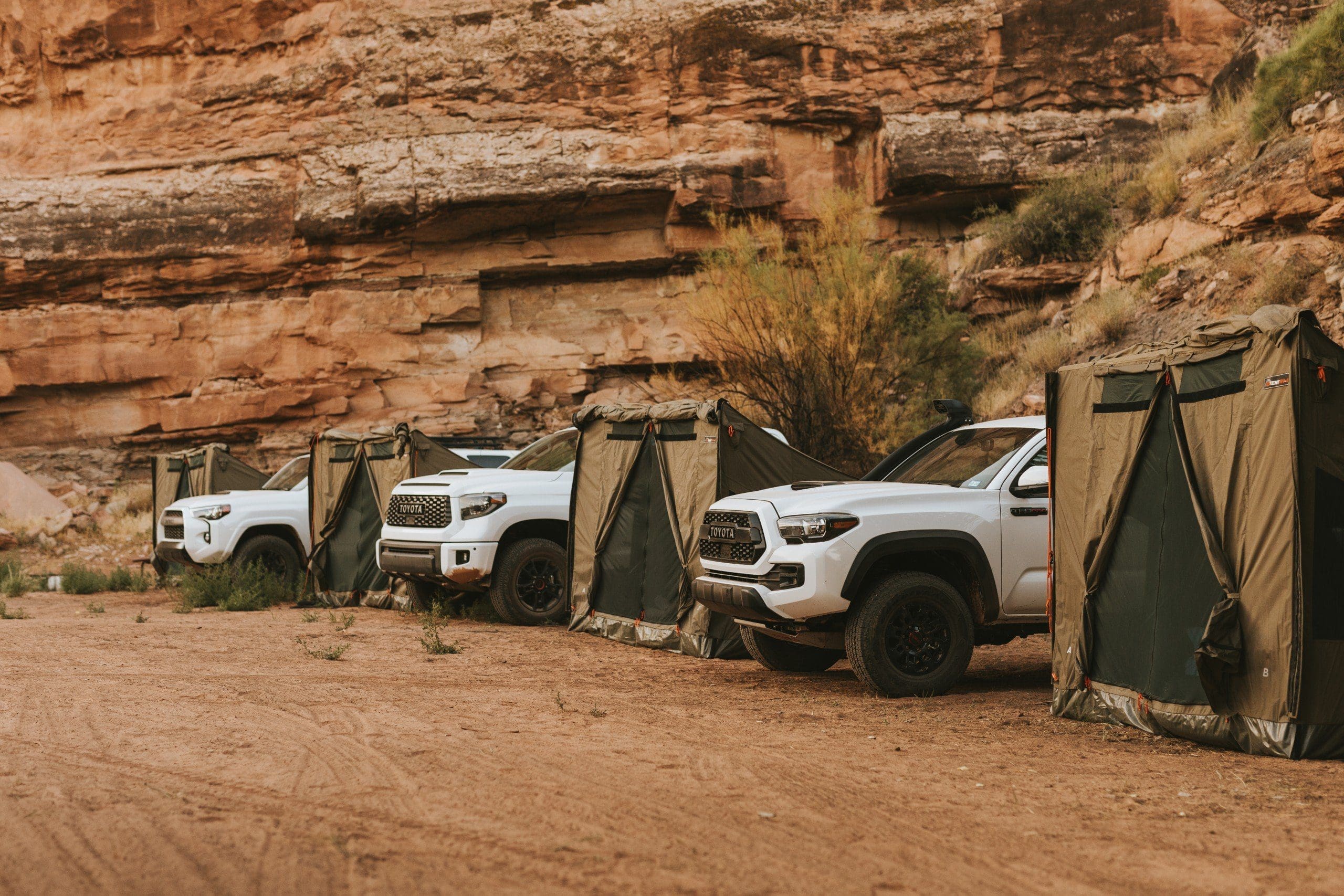
Pros:
- Ground tents range widely in size and weight, ranging in quality from the supremely lightweight mountaineering tents to the heavy-duty quick-deploy touring tents, such as Oztents. Ground tents can also hold more people, so they are potentially more family-friendly.
- Cost. For the same cost as a rooftop tent, you can purchase multiple ground tents to suit differing environments, including a lightweight one for summer and a really great four-season tent for poor weather or winter camping. Pro tip: look for a tub floor when purchasing a good-quality ground tent. The seams aren’t located on the floor, which is helpful if flooding occurs.
- Ground tents do not require the purchase of a mounting system or roof rack.
- Ground tents are not vehicle-dependent, so if you are adventuring during the day it is possible to leave your camp fully set up.
- As these tents are lower to the ground, they usually perform better in the wind.
- Decreased risk of injury. It is not necessary to climb a ladder to get into a ground tent.
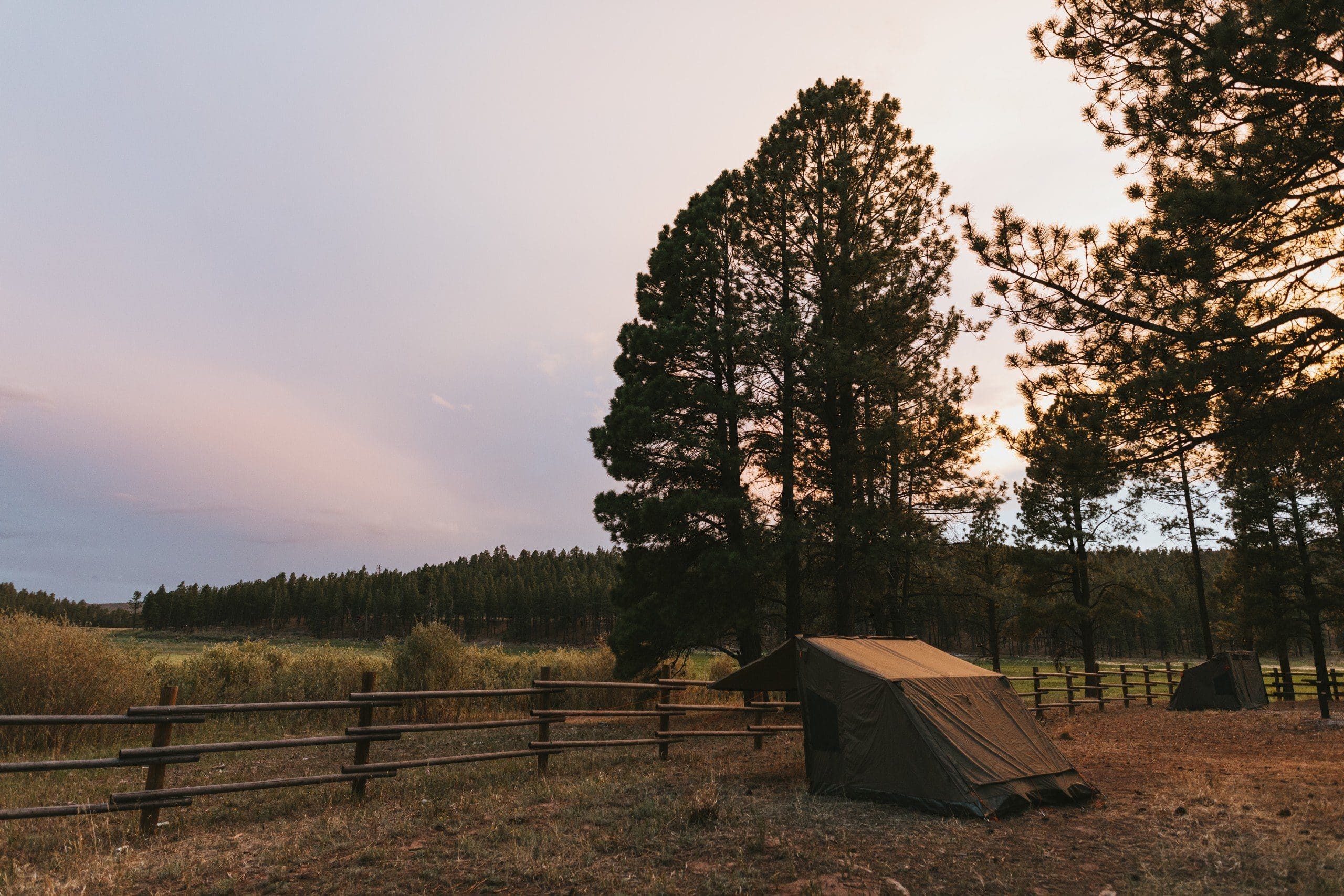
Cons:
- The ground tent takes more work and more time to set up and tear down – unrolling your sleeping bag, blowing up an air mattress, hammering tent pegs, and fiddling with tent poles.
- Ground tents are not easy to level and can be uncomfortable without an air mattress or sleeping pad.
- Ground tents are exposed to wet, muddy environments, bugs, and, potentially, animals.
Now that you know the pros and cons of each tent setup, here are some important questions to ask before you invest in a tent.
How often are you going to use the tent?
How many rough miles are going to be put on it?
How often do you camp?
If you are a weekend warrior, is the rooftop tent the best choice for you?
You might also want to consider the following criteria:
- Price
- Weight
- Ease of use
- Durability
For more on Rooftop Tents, Cots, Ground Tents and Sleep Systems, check out this episode of “Oh Hey There With Jeff.
THE PROS AND CONS OF OVERLANDING WITH TRAILERS
Overlanding and off-road trailers are gaining popularity, and for good reason. A great trailer can offer excellent storage solutions and additional freedom. Like anything, towing a trailer has its pros and cons. Whether or not a trailer will work for you will depend on your setup, trip goals and priorities.
At Expedition Overland we choose to tow trailers for many reasons, but in particular because they provide the necessary cargo space for a fully loaded single vehicle. As we travel in a large group, we find there is more room in the tow vehicle for occupants and their belongings. This setup is also more efficient for a single platform – i.e. one vehicle and one trailer can hold two rooftop tents, providing sleeping arrangements for all occupants of the vehicle (rather than adding an extra vehicle).
To tow a trailer or not to tow a trailer? That is the question! Here are the pros and cons of each.
THE PROS OF OVERLANDING WITH TRAILERS
FREEDOM!
A camp setup built around a trailer allows the tow vehicle to leave at any time. Trailers are especially helpful to the weekend warrior, as drivers can stage the trailer at a campsite and head out to go fishing, hiking or to tackle an off-road trail with the added convenience of using the vehicle as a daily driver sans trailer during the week.
Staging a trailer also allows a group to split up, for example, if certain family members want to stay at camp while others desire a quick trip to town or a trail run. In the event you need to quickly depart the premises (say due to an injury or security issue) staging a trailer can also be a valid safety factor.
WEIGHT DISTRIBUTION
As tow ratings are typically higher than payload ratings, many heavy items can live on a trailer including water tanks, rooftop tents, a galley system and large storage solutions. Transferring these items to a trailer also frees up the tow vehicle from requiring extensive modifications; suspension, tires and a bumper with a hitch would do the trick.
ORGANIZATION AND EASE
The organization of a well-built trailer is second to none. In our experience, the Patriot Campers galley systems are much more efficient than any vehicle-based system. In fact, we haven’t come across a better trailer than the Patriot Camper out on the market.
As with any home, the galley or kitchen space can quickly become the hub of the campsite. The galley offers a much better cooking environment with a lot of flat surfaces and boasts spacious storage caverns for Alu Boxes. We use these boxes for dry storage in all of our trucks.
In terms of ease, oftentimes trailers can handle larger rooftop tents (such as the Eezi-Awn 1600 or Globe Tracker Trailer Tent) than tow vehicles. Rooftop tents installed atop a trailer are also lower to the ground, making for a more accessible bed with easier set up and tear down.
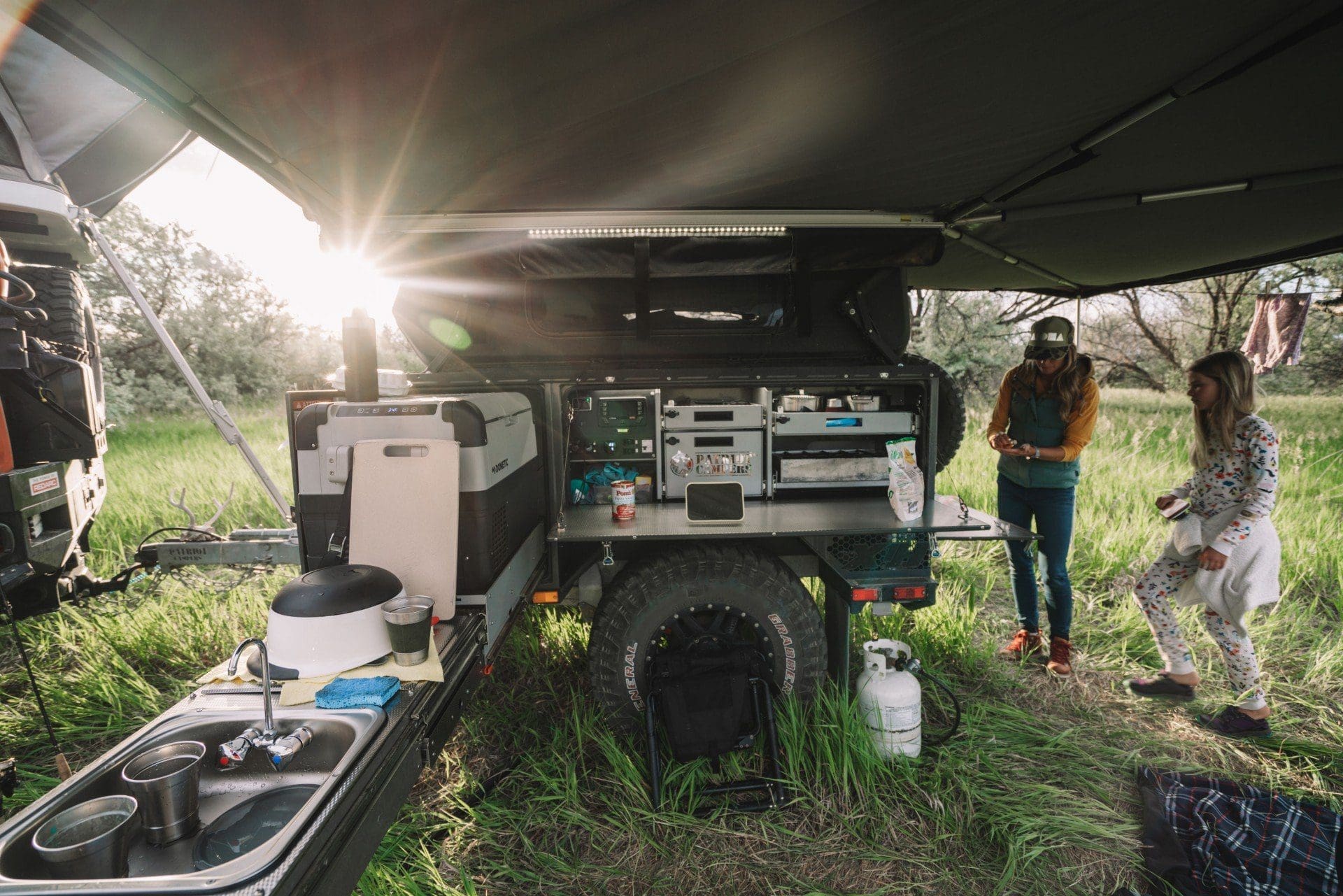
THE CONS OF OVERLANDING WITH TRAILERS
DEFENSIVE DRIVING AND MANEUVERABILITY TAKE A HIT
Overland vehicles without trailers can make faster reactionary movements while driving thus having a defensive driving advantage. Trailers complicate a driver’s ability to make quick lane changes, rapid turn-arounds and sudden braking without damage to either the tow vehicle or trailer.
Road conditions are also a factor here. Narrow city streets in Central America and Peru can be difficult to navigate with a large rig and trailer. This is especially the case when trying to find a parking spot, trying to avoid unmarked one-way streets or attempting to turn around in tight areas.
Depending on the severity of the trail and the trailer you buy, the trailer might limit you in off-road conditions. Very deep snow, sand or mud is the biggest disadvantage to trailer weight as these conditions change the dynamic of how the vehicle performs.
ADDING THE COMPLEXITY OF A TOW VEHICLE
There is no doubt that adding a trailer adds complexity to your overland setup. Special parts and considerations need to be made and the addition of more mechanical parts increases the chances of failure.
The draw bar can also be a drawback. If not calculated properly, the draw bar can impede access into the back of your vehicle. For example, the Lexus GX has a side-opening door (as opposed to a tailgate) which, if your trailer isn’t jackknifed properly while parked, could be a problem.
COST
Consider how overall length might add additional cost to ferries, toll roads and shipping options. Weight is also an important consideration. A heavy trailer setup can result in decreased range and fuel economy. To recover from this you might need a Long Range Automotive tank to enhance your range – but this modification also adds more weight to the tow vehicle, changing spring rates. Like the human body, all parts are connected and impact each other!
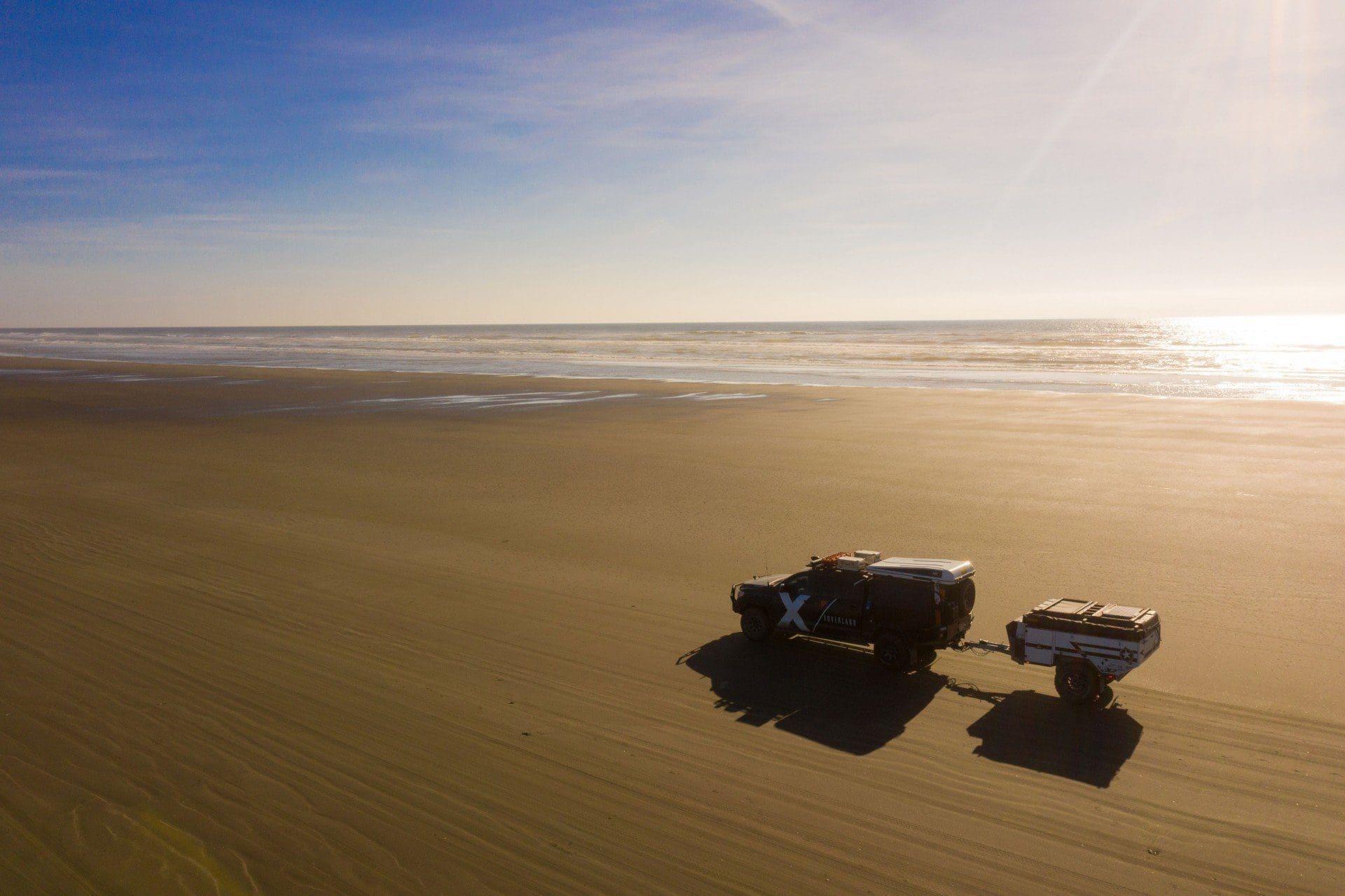
IS A TRAILER RIGHT FOR YOU? HERE ARE SOME TIPS AND TRICKS
- Try to match the trailer tire size to the tow vehicle. Hub pattern, wheels and tire size would ideally match.
- Off-road trailers can come with a heavy power draw, potentially adding more strain to the alternator and battery source. Make sure you have enough power to run the electronics in your trailer.
- Have a good brake controller. We love the REDARC Tow Pro as it has an on-road and off-road function, with an inertia sensing function for highway conditions and a user-controlled mode for off-road use.
- Consider the tow weight and handling of the tow vehicle. Upgrades such as springs, adjustable dampened shocks, or air bags may have to be made in order to safely manage the trailer, maintain ride heights and enhance shock performance on corrugated roads.
- Every offroad or overland trailer can integrate its own power management system, creating an entire ecosystem within the trailer. We use the REDARC Manager30 and new RedVision systems in the Patriot Campers X1-H and TH610 with great success.
